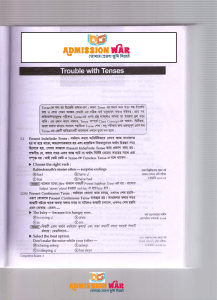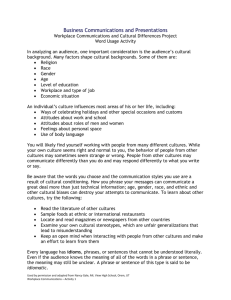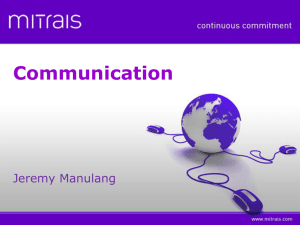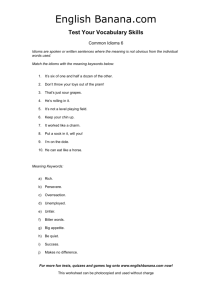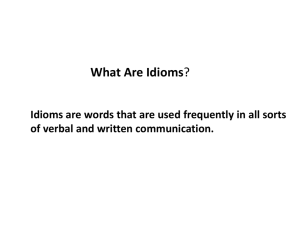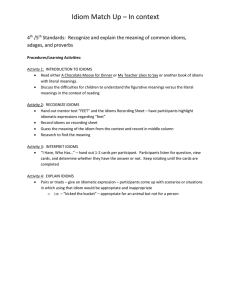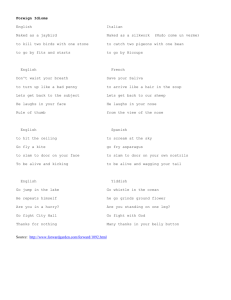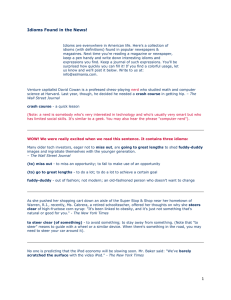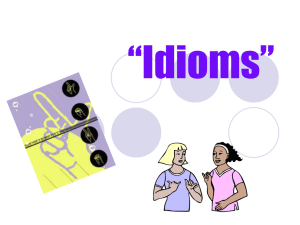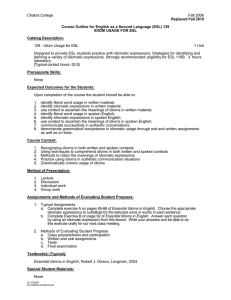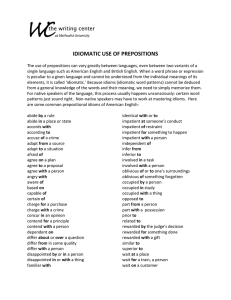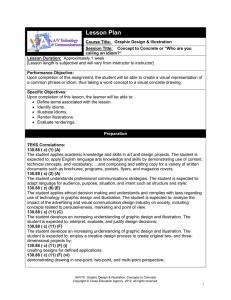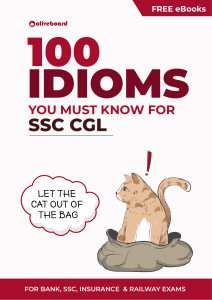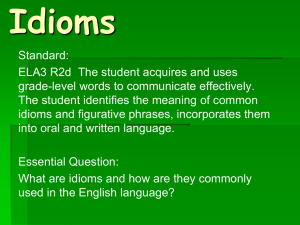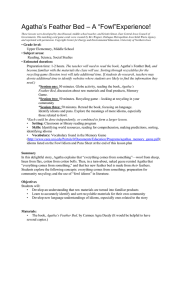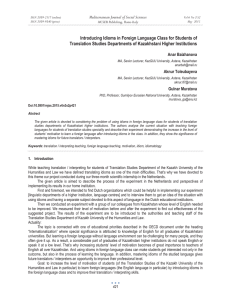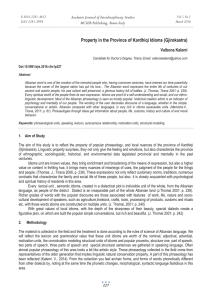Cross-cultural communication - University of South Carolina
advertisement
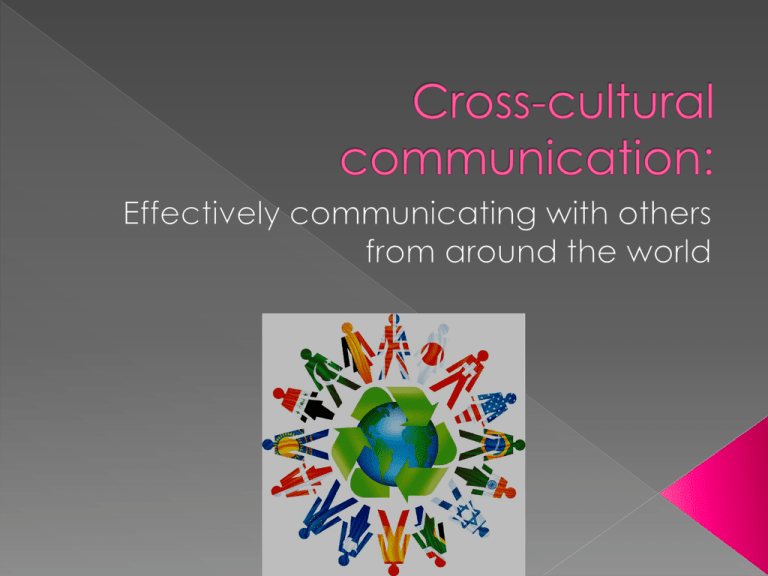
Liaise between Dept. of Homeland Security and the University Manage international enrollment standards for university based on SC Illegal Immigration Act of 2008 Serving international students on campus with advising services and programming… Advising includes: › Immigration › Cultural › Personal Programming includes: › New student orientation › CGC › Int’l Ed Week › Workshops France Colombia South Korea Germany Brazil India Angola Turkey China Saudi Arabia Oman Geo Game •Fall ‘09 All campuses: 1347 students Central America •Fall ‘09 Columbia: 1186 and the Caribbean 9 (1%) Australia/Pacific 4 (<1%) South America Africa 51 50 (4%) (4%) North America 72 (6%) China 350 (30%) Middle East 110 (9%) India 155 (13%) South/East Asia 221 (19%) Europe 164 (14%) First and foremost: › RESPECT › SINCERITY Know basic cultural tenets when possible Speak clearly and slowly as needed Do NOT shout. Volume is not an issue Avoid slang, idioms and heavy accent Writing may be better than speaking Clearly expressed IDIOMS Come up with Deal with For good Go ahead Go on In fact On the other hand Point out Produce/create/find To be concerned about Permanently Begin Continue Basically Looking at the opposite side of … Explain, show Clearly expressed IDIOMS Did you figure it out? Do you get it? Make up (work) Can you make it to your appointment? Did you solve it? Do you understand? Re-do or repeat (work) Will you be able to arrive on time? “Cold Climate” Cultures “Hot Climate” Cultures Japanese Chinese Arabic Mexican Greek Latin American U.S. (American) Canadian Western/Northern European Knowledge is situational, relational Less verbally explicit, written or formally expressed More internalized understandings of what is communicated (ex: "in-jokes") Stable, long term, well-established relationships are common Decisions and activities focus around personal face-to-face communication Strong awareness of who is accepted/belongs vs. "outsiders" Authority is very important EXAMPLE: Family reunions Verbal message is often indirect Communication is an art of engagement Voice tone, eye contact, gestures are important Relationships are built over time, are long-lasting and center on trust Disagreement is personal Group problem-solving is preferred Learning occurs by watching model first, then practice Accuracy is valued Identity rooted in group (work, family, religion) Rules oriented: there’s a procedure for everything Most knowledge is codified, public, external, and accessible. Sequencing, separation--of time, of space, of activities, of relationships More interpersonal connections of shorter duration Task-centered. Decisions and activities focus around what needs to be done, division of responsibilities. Example: Airports Words are most important tool Knowledge is transferable Verbal message is direct Learning is by following directions, focus on detail. Speed is valued Individual work is preferred Disagreement is rational, not personal Identity rooted in self and accomplishments Influenced by: › Personality › Culture Do All Americans communicate the same way? › Consider regional › Family › Values › Perception › Situation differences › Family/value differences Avoid Stereotyping! Our similarities far outweigh our differences! Saphiere, D.F., Mikk, B.K., & DeVries, B.I. (2005) Communication Highwire: leveraging the power of diverse communication styles. Yarmouth, ME, USA: Intercultural Press. http://hubpages.com/hub/High-Context-vs-LowContext-Communication Agar, M. (1994). Language Shock/Understanding the Culture of Conversation. New York: William Morrow and Company, Inc. Lanier, Sarah A. (2000) Foreign to Familiar: A guide for understanding hot- and cold-climate cultures. Hagerstown, MD: Macdougall Publishing. International Student Services University of South Carolina 901 Sumter St, #123 Byrnes Columbia, SC 29208 T: (803) 777-7461 F: (803) 777-0462 www.sa.sc.edu/iss
